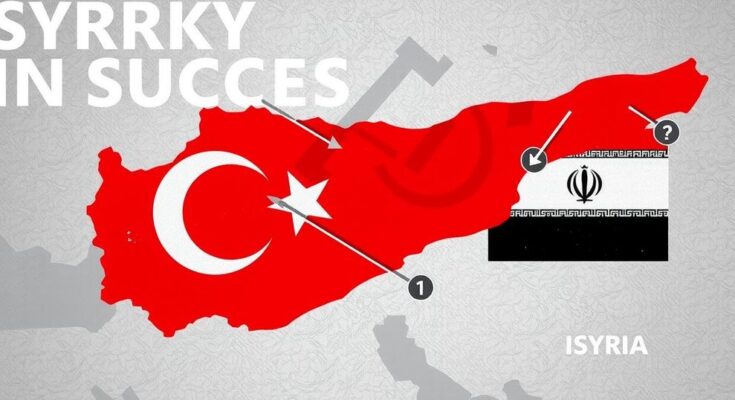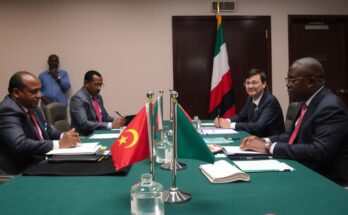Recent developments in Syria have seen Bashar al-Assad flee the country, leading analysts to declare Turkey the principal victor, while Iran and Russia are significant losers. The future of negotiations between Hayat Tahrir al-Sham and Turkey, especially regarding the Kurdish issue, will be crucial to the ongoing dynamics in the region.
The civil war in Syria, which commenced in 2011, underwent a significant transformation following the ousting of President Bashar al-Assad. As armed factions led by Hayat Tahrir al-Sham (HTS) penetrated the capital, Damascus, Assad reportedly fled to Moscow with his family. Analysts believe that amidst these developments, Turkey emerges as the principal beneficiary, while Iran and Russia bear the brunt of the losses. Experts emphasize that the future negotiations between HTS and Turkey will play a critical role, particularly regarding the Kurdish question, which will influence the region’s dynamics going forward.
Since its outset in 2011, the Syrian civil war has involved numerous foreign and domestic players, contributing to a complex geopolitical landscape. The recent escalation involving HTS’s entry into Damascus marks a pivotal turn in the conflict, leading to the displacement of Assad. The interests of regional powers, particularly Turkey, Russia, and Iran, have been intertwined throughout the conflict. Assessments from military analysts and various experts shed light on the shifting alliances and outcomes as territories change hands and new negotiations unfold.
In summary, the unfolding situation in Syria has repositioned Turkey as a principal victor amidst the political shifts following Assad’s departure. In contrast, both Iran and Russia find themselves at a disadvantage, dealing with the ramifications of these developments. The trajectory of negotiations between HTS and Turkey, particularly concerning Kurdish issues, will be critical in shaping the future stability of the region as stakeholders reassess their strategies and alliances.
Original Source: www.voanews.com



